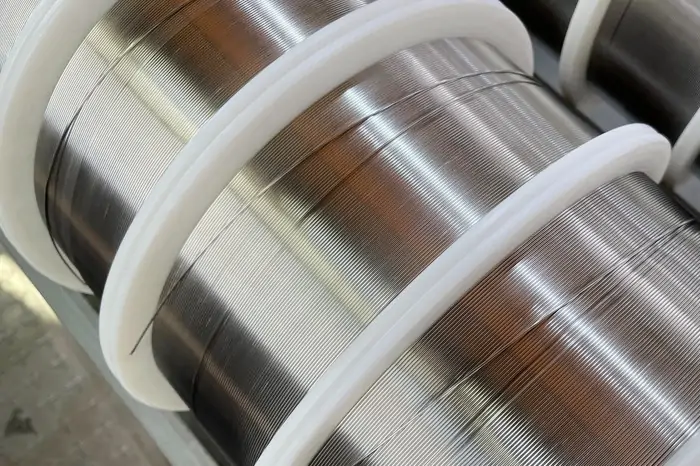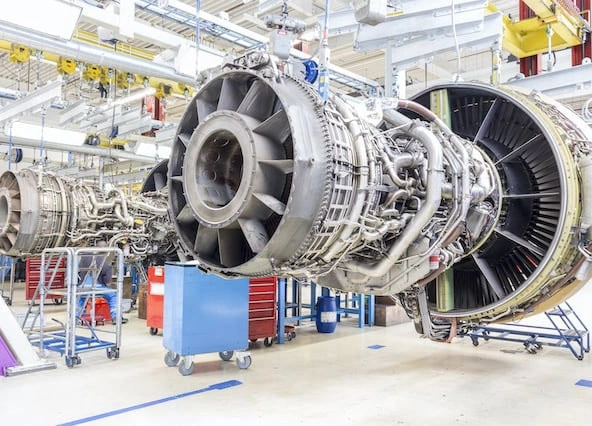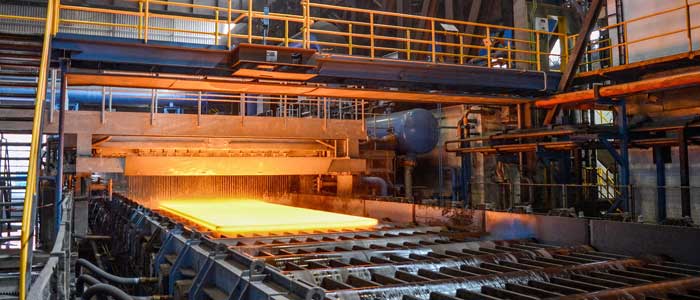Nickel-base alloys are a marvel of modern metallurgy, celebrated for their exceptional strength and durability, especially under extreme conditions. These high-performance alloys are engineered with precision to withstand not only high temperatures but also corrosive environments, making them indispensable in various industrial applications. Their unique properties allow them to maintain structural integrity and performance where other materials might fail. In this article, we’ll delve into the fascinating world of nickel alloys, exploring their properties, applications, and reasons why they are the go-to choice for challenging situations where reliability is non-negotiable.
What Are Nickel Base Alloys?
Nickel-base alloys are a specialized group of metals with nickel as their primary component. To enhance their performance, these alloys incorporate other elements such as chromium, iron, and molybdenum. Each element is chosen for its ability to contribute specific benefits, like boosting strength or resistance to environmental factors. This careful selection and combination of elements result in a material that can operate effectively in some of the harshest industrial conditions, offering a balance of mechanical and chemical properties that few other materials can match.
Properties of Nickel Alloys
- High Temperature Resistance: One of the most remarkable features of nickel alloys is their capacity to maintain mechanical strength at elevated temperatures. This makes them ideal for applications where components are subjected to intense heat, such as in jet engines and industrial furnaces. Their ability to perform reliably at high temperatures not only ensures safety but also enhances the efficiency of the systems they are part of.
- Corrosion Resistance: Nickel alloys are prized for their excellent resistance to oxidation and corrosion, making them suitable for environments that involve acids and other aggressive substances. This resistance is critical in industries like chemical processing, where materials are constantly exposed to potentially damaging chemicals. By preventing corrosion, nickel alloys help extend the lifespan of equipment, reducing the need for frequent replacements and repairs.
- Durability: Designed to withstand some of the most challenging conditions, nickel alloys offer unparalleled durability. Their resilience translates into a cost-effective solution for industries aiming to minimize maintenance and downtime. The long service life of these alloys can lead to significant savings over time, reinforcing their status as a preferred material for demanding applications.
- Versatility: Nickel alloys’ adaptability is another key advantage. By varying their composition, they can be tailored to meet the specific demands of different applications. This versatility allows engineers to select the perfect alloy for any given situation, whether it requires enhanced mechanical properties, superior corrosion resistance, or a combination of both.
Applications of High-Temperature Nickel Alloys
Thanks to their unique properties, nickel-base alloys are used across a broad spectrum of industries. Their ability to perform in demanding conditions makes them invaluable in sectors where failure is not an option. Below are some of the key applications where these alloys play a crucial role:
Aerospace Industry
In the aerospace sector, the need for materials that can withstand extreme conditions is paramount. Nickel alloys are utilized in the manufacturing of turbine blades, engine components, and other critical parts that require excellent mechanical properties at high temperatures. Their reliability under stress and heat is essential for ensuring the safety and efficiency of aircraft, allowing for longer flight times and higher performance under demanding conditions.
Power Generation
Power plants, especially those utilizing gas turbines, rely on heat-resistant materials to function efficiently. Nickel alloys are integral in the construction of turbine blades and other components that endure extreme heat and pressure. Their use ensures that power plants can operate safely and efficiently, providing a steady supply of energy while minimizing the risk of failures and maintenance downtimes.
Chemical Processing
The chemical processing industry often involves handling highly corrosive substances. Nickel alloys’ resistance to corrosion makes them ideal for use in components like valves, pumps, and heat exchangers. By preventing leaks and reducing wear and tear, these alloys help maintain the integrity of the equipment, leading to safer operations and longer equipment lifespans.
Oil and Gas Industry
The oil and gas sector presents some of the harshest working environments, with equipment frequently exposed to corrosive elements. Nickel alloys are used in pipelines, drilling equipment, and storage tanks due to their durability and reliability. By minimizing the risk of failures, these alloys play a critical role in ensuring continuous operation and reducing the environmental impact of leaks and spills.
Automotive Industry
In recent years, high-performance alloys have become increasingly prevalent in the automotive industry, particularly in the design of high-performance engines. Their ability to endure high temperatures and mechanical stresses enhances engine efficiency and longevity, contributing to improved vehicle performance and reduced emissions.
Types of Nickel Base Alloys
Nickel alloys come in a variety of types, each engineered for specific applications. These specialized alloys offer unique benefits that cater to the demands of different industries:
Inconel
Inconel is a family of nickel-chromium alloys renowned for their excellent high-temperature strength and resistance to oxidation and corrosion. This makes them ideal for use in jet engines, gas turbines, and other high-temperature environments where reliability is critical. The ability of Inconel to maintain its properties under extreme conditions is a key reason for its widespread adoption in demanding applications.
Monel
Primarily composed of nickel and copper, Monel alloys are distinguished by their exceptional corrosion resistance, especially in marine environments. This characteristic makes them perfect for marine applications and chemical processing equipment, where exposure to seawater and other corrosive elements is common.
Hastelloy
Hastelloy alloys are nickel-molybdenum-chromium compounds that offer outstanding corrosion resistance in a wide range of severe environments. They are often used in industries like chemical processing, pollution control, and nuclear reactors, where materials must withstand aggressive chemicals and high-temperature conditions.
Waspaloy
Waspaloy is a nickel-based superalloy known for its strength and stability at high temperatures. It is commonly employed in aerospace applications, particularly in turbine engines, where it must endure extreme heat and stress while maintaining structural integrity.
Advancements in Nickel Alloy Technology
The field of nickel alloy technology is constantly evolving, with ongoing research and development leading to new advancements. These innovations are expanding the capabilities of nickel alloys, making them even more indispensable across various industries.
Alloy Development
Metallurgists are continually working to develop new alloys that offer improved performance in specific applications. Efforts focus on enhancing properties like corrosion resistance, increasing temperature thresholds, and reducing material costs. These advancements are crucial for meeting the ever-growing demands of modern industry.
3D Printing and Nickel Alloys
Additive manufacturing, commonly known as 3D printing, is revolutionizing the production of nickel alloy components. This technology enables the creation of complex designs that were previously impossible or too costly to produce. The ability to rapidly prototype and manufacture custom parts opens up new possibilities for the use of nickel alloys in innovative applications.
Environmental Considerations
As industries strive to adopt more sustainable practices, there is an increasing emphasis on developing environmentally friendly nickel alloys. This includes efforts to reduce the energy required for production and increase the recyclability of alloys. These initiatives are crucial for ensuring that nickel alloys continue to be a sustainable choice for the future.
Why Choose Nickel Base Alloys?
For industries facing extreme conditions, high-temperature nickel alloys offer unmatched advantages. Their ability to withstand heat, resist corrosion, and maintain strength under pressure makes them an invaluable asset. By choosing nickel alloys, companies can ensure the safety, efficiency, and longevity of their equipment and processes. The reliability and performance of these materials contribute to operational excellence and cost savings, reinforcing their status as a cornerstone of modern industrial materials.
In conclusion, nickel-base alloys are a testament to human ingenuity in materials science. Their application across various industries highlights their versatility and reliability. As technology advances, we can expect even greater innovations in nickel alloy development, further cementing their role as a cornerstone of industrial materials. The future of nickel alloys is bright, with ongoing research promising to unlock new potential and expand their utility in ways we have yet to imagine.









